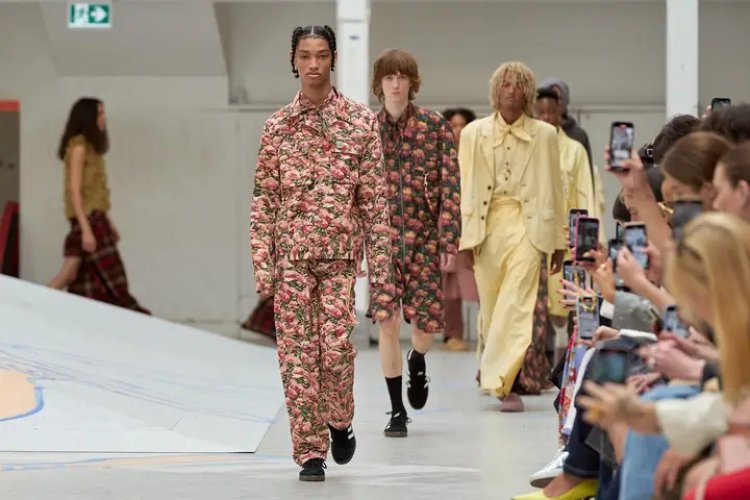Copenhagen Takes Center Stage in the Rise of Emerging Designers: A Personal Touch to Fashion Week
Rising Designers' Struggles Addressed by Copenhagen Fashion Week's NewTalent Program

Emerging designers are a dynamic force within the fashion industry, often seen as pioneers of innovation, creating collections that defy conventional fashion norms and occasionally even foresee trends ahead of their time. Despite the industry's claim to be founded on the creativity of such individuals, climbing the ladder of success remains a challenge for those on their journey upward.
In a determined effort to confront these challenges, Copenhagen Fashion Week (CPHFW) introduced its NewTalent program in 2022, in collaboration with circular textile firm Cellulose. This initiative aims to support budding talents through mentorship opportunities, financial assistance, and inclusion in the CPHFW schedule. This year, participants in the program included P.L.N., Latimmier, as well as newcomers Rolf Ekfroth and Nicklas Skovgaard, the finalist of the 2022 Wessel & Vett Fashion Prize.
Financial backing of this nature is often crucial for these designers, many of whom operate independently, relying on such initiatives to grow their businesses. While this circumstance presents its own set of challenges, designers in this category enjoy a degree of creative freedom that established brands find hard to replicate. This support empowers them to explore their creativity on their terms, without the need to answer to external influences. Expanding on these efforts, CPHFW hosted a showroom for the SS24 season, offering a platform for handpicked Nordic designers to showcase their collections to press and buyers, fostering discovery throughout the week.
This season, personal and intimate concepts took center stage for many participants, with themes often delving into designers' own histories, heritage, and upbringing. Such themes are prevalent in the world of emerging designers, made possible by the autonomy they possess, resulting in collections infused with deep significance for their creators. For instance, P.L.N.'s collection, designed by Peter Lundvald Nielsen, delved into his search for connection and companionship. Nielsen's collection featured experimental interpretations of silhouettes and proportions, inviting viewers to interpret the garments in their unique ways. For Nielsen, this marked his third and final collection under the program, signaling the start of a new chapter.
On the other hand, for newly selected Finnish designer Rolf Ekroth, this was just the beginning of his journey. Similar to Nielsen, Ekroth's collection revolved around sentimental storytelling intertwined with his upbringing. A key element was his hand-painted rose print, created by his girlfriend, symbolizing a nostalgic view of the past. The collection also blended sportswear, patchwork quilting, and knitting, each linked to bygone eras. Reflecting on the concept, Ekroth stated, "It's a playful nod to my nostalgia for my teenage years. Every season, I think I'll shift focus, but I keep returning to that period."
Ekroth, who typically aligned with the menswear calendar, found his process transformed through the NewTalent program. The collection, crafted over six months, was showcased to an audience of 600 during the Danish fashion event, a significant step up from his previous Milan presentation, where prominent brands overshadowed his showroom. Speaking of his emerging journey, Ekroth remarked, "Given that this is primarily a menswear brand, being a couple of months behind makes sales a bit challenging at this stage. However, I haven't stressed about sales in a while. What matters most is staying true to our vision, seizing each new collaboration and opportunity. Sales will come when they do. When we receive more financial support, adopting this perspective becomes easier. Certainly, growth entails considering sales eventually, but larger retailers often track your trajectory for three years. I can't change the system."

 chandni
chandni 



